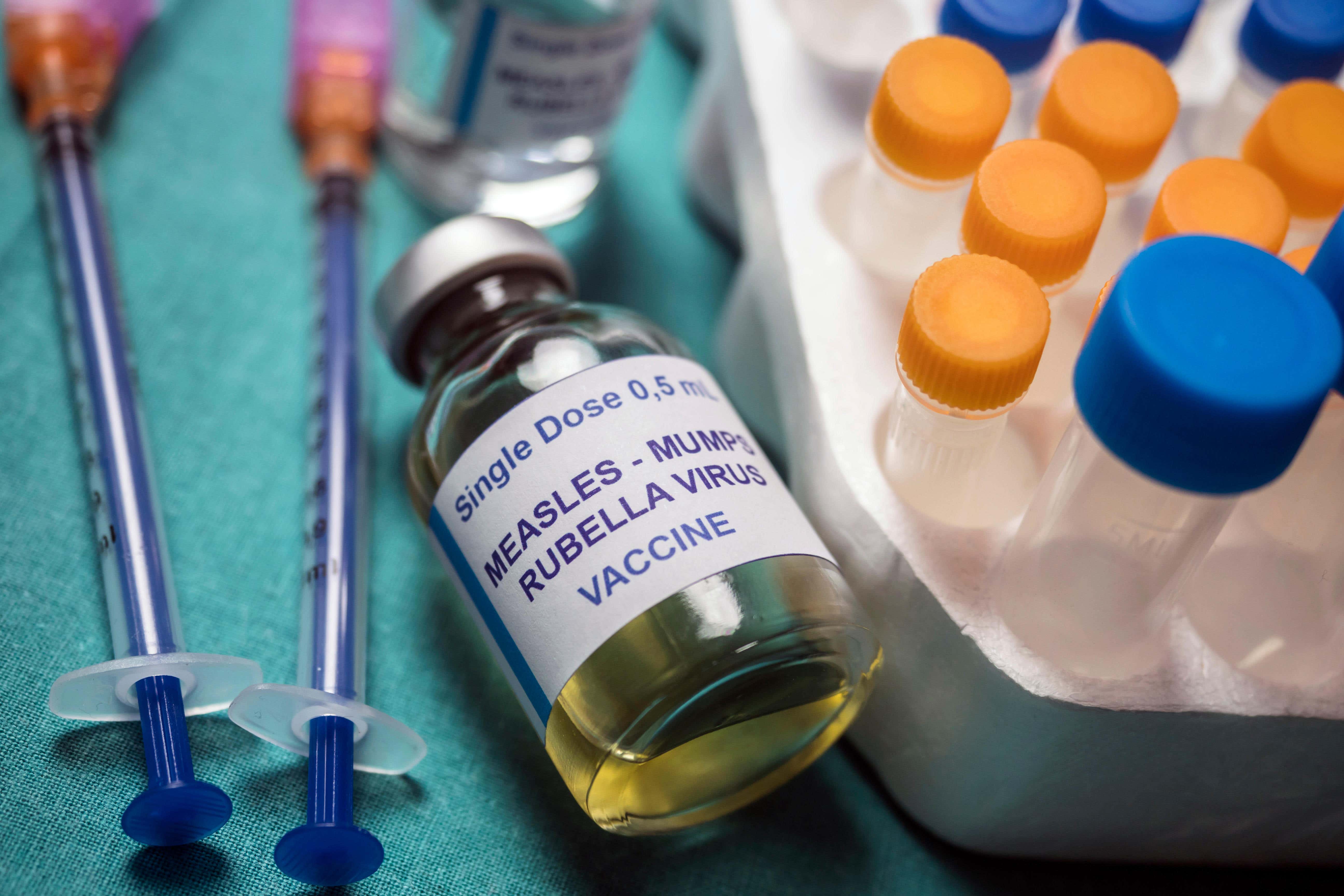Parents urged to ensure children are up to date with vaccinations
Figures show vaccine coverage fell in 13 out of the 14 routine vaccination programmes for children up to five years old in England in 2021-22.

Parents have been urged to ensure their children have received their routine jabs against potentially serious or deadly diseases such as polio and measles after new data showed a drop in vaccination levels.
New figures from NHS Digital, published on Thursday, show that vaccine coverage fell in 13 out of the 14 routine vaccination programmes for children up to five years old in England in 2021-22 compared with the previous year.
Vaccine coverage is defined as the number of people immunised as a proportion of those eligible.
Health officials said the disruption caused by the pandemic was likely to have led to a drop in vaccination rates.
But the UK Health Security Agency (UKHSA) said it was important that childhood vaccine coverage was recovered as soon as possible to the 95% level recommended by the World Health Organisation (WHO) to prevent the spread of “serious” and “sometimes deadly” diseases.
The NHS Digital report found that 89.2% of children at 24 months had completed their first dose of the MMR (measles, mumps and rubella) vaccine, a drop from 90.3% in 2020-21.
In 2021-22 some 85.7% of children had received their 2nd dose of MMR vaccine by their fifth birthday, falling from 86.6% in the previous year.
It also said that coverage for the six-in-one/five-in-one vaccine – which protects against diphtheria, pertussis, tetanus, polio, disease caused by Haemophilus influenzae type b and hepatitis B – decreased among children aged 12 months, 24 months and five years.
Some 91.8% of children were reported to have completed their primary course of three doses of the six-in-one at 12 months in 2021-22, down from 92.0% in 2020-21.
I would urge parents to check that all children are up to date with their vaccines, and if not to get them booked in as soon as possible to make sure they have maximum protection against what can be terrible diseases.
Dr Vanessa Saliba, consultant epidemiologist at UKHSA, said: “Measles is highly contagious and can be dangerous, and it is extremely worrying that we are seeing levels of uptake of the MMR vaccine falling among young children.
“It is also vitally important that children get their polio vaccinations to help prevent the risk of paralysis.
“I would urge parents to check that all children are up to date with their vaccines, and if not to get them booked in as soon as possible to make sure they have maximum protection against what can be terrible diseases.
“Childhood vaccines also boost population immunity levels, helping prevent outbreaks, so by taking up all vaccinations for our children, we play our part in keeping these diseases confined to the past.”
The latest childhood vaccination figures come after health officials earlier this year sounded the alarm over the rising number of polio samples found in sewage in London.
It sparked a drive to vaccinate almost a million children aged one to nine across the capital against the disease, which can cause paralysis in rare cases and can be life-threatening.
The UKHSA said that to date no clinical cases of polio have been identified but health services have been urged to remain vigilant to any cases of paralysis in children.
It also said that because measles is highly contagious, even a small decline in MMR uptake can lead to a rise in cases.
The agency added that since international travel has resumed closer to pre-pandemic levels it is more likely that measles will be brought in from countries that have higher levels of the disease and cause outbreaks.
Dr Doug Brown, chief executive of the British Society for Immunology, said: “Vaccines save lives and are the safest and most effective method to protect our children against disease.
Fortunately, it is never too late to be vaccinated
“Low levels of vaccination coverage matter as it means these diseases have the potential to spread within our communities, infecting unvaccinated people, including vulnerable individuals unable to have vaccinations such as young babies or people with cancer. We can and must do better.”
Helen Bedford, professor of child public health at UCL, said: “Fortunately, it is never too late to be vaccinated. I would urge parents to check their children’s vaccination status which is recorded in their Red Book, or if in doubt, to check with their GP.
“Parents with questions or concerns about vaccines can speak to their health visitor, practice nurse, GP or school nurse. Vaccination works, is highly effective and has an excellent safety record. No child needs to face the potentially serious consequences of a vaccine-preventable disease.”
Bookmark popover
Removed from bookmarks